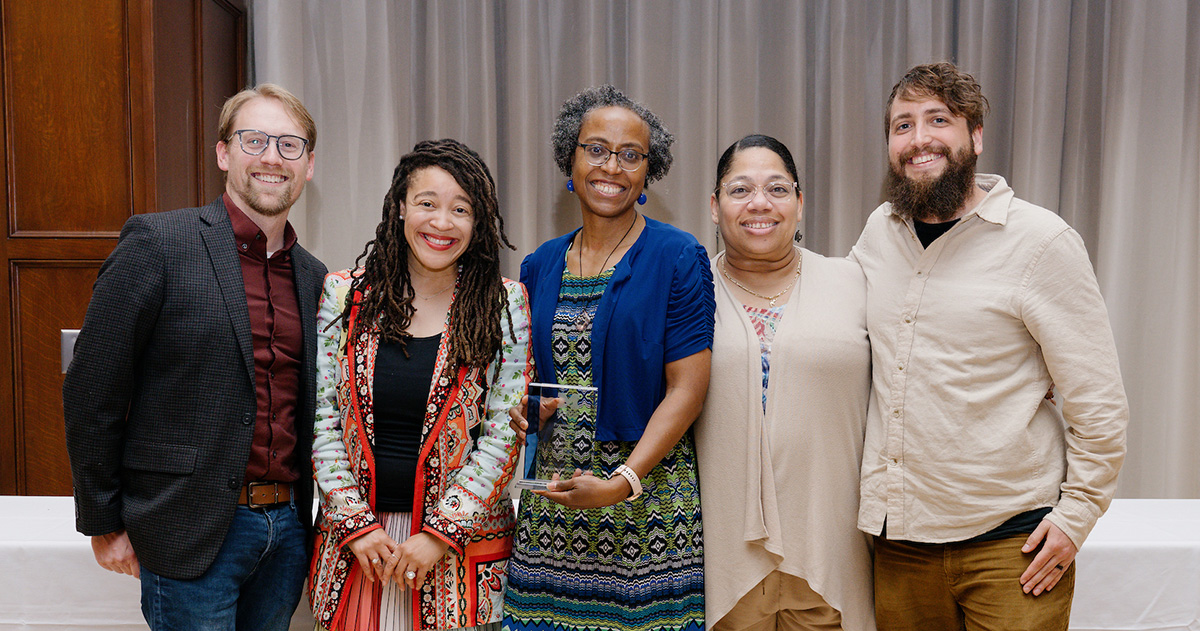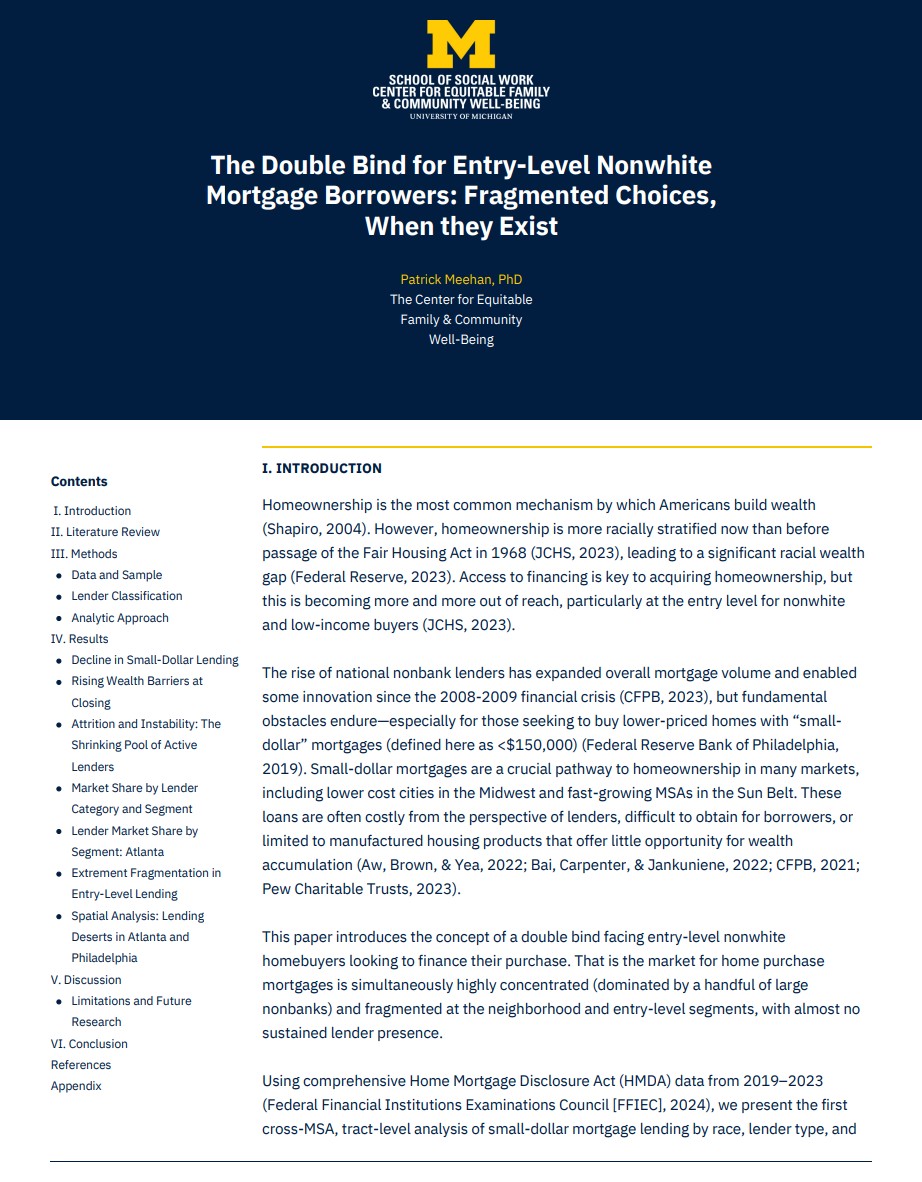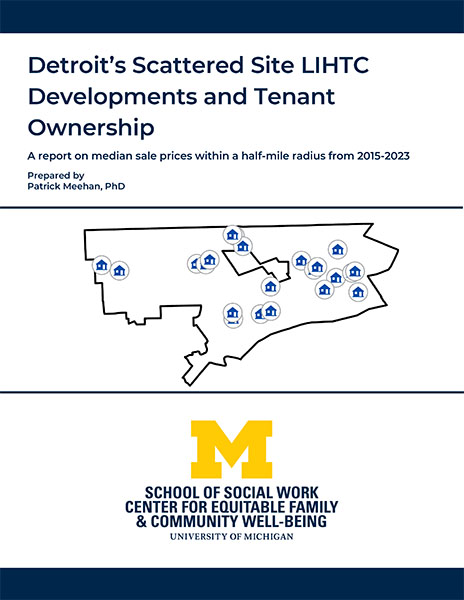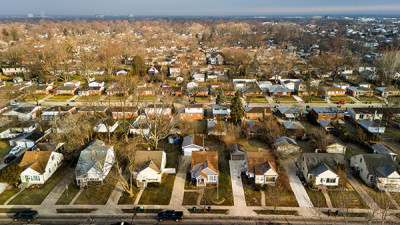Center for Equitable Family & Community Well-Being
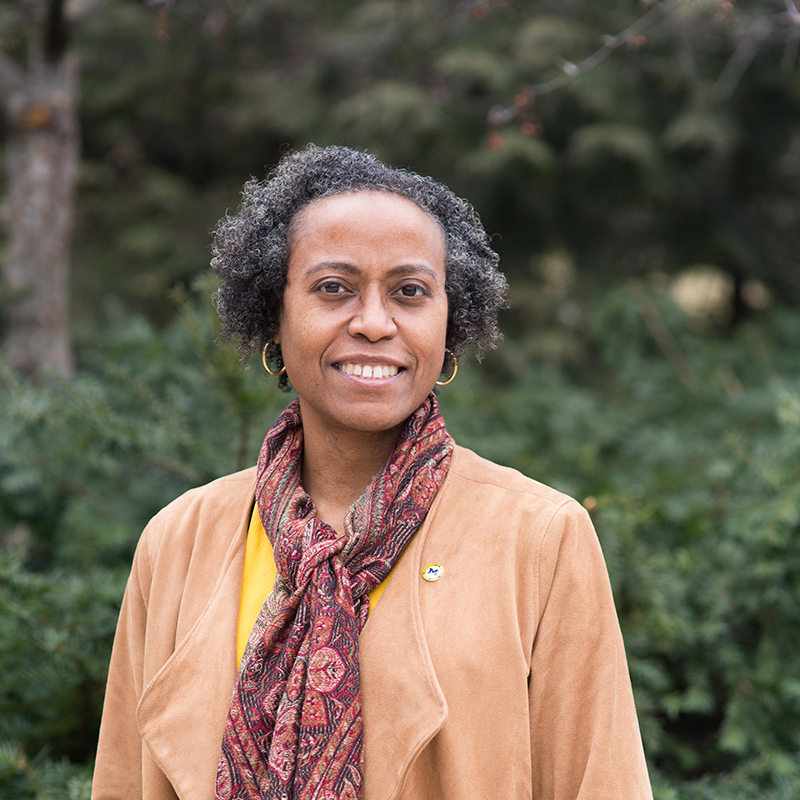 Redefining University-Community Engagement
Redefining University-Community Engagement
In a dynamic, post-industrial multi-cultural society, it is easy for systems and policies to evolve in such a way that they become misaligned. Similarly, with a history of racism and growing class divides, some families and communities receive inadequate attention and investment and find themselves disconnected from the resources and opportunities of their surrounding economy. Successful responses are not easy or guaranteed, but there are occasions when policymakers make an appropriate fix or when grassroots leaders and local champions rally around a promising strategy. The goal of the Center for Equitable Family and Community Well-Being is to encourage and support such win-win efforts by connecting the resources and intellectual strength of the University of Michigan with the passion and social capital of community leaders.
Most importantly, families and communities will be at the heart of our work. The primary criteria for any project work will be that it explicitly improve the well-being of families and/or communities and reduce existing inequities.
Although there are many partnerships and models of engaged research that take place between the University and external individuals or groups, the work is often disconnected, especially as they show up in the Detroit metropolitan area. The methodology introduced here will be intentional about connecting other U of M centers and initiatives around Center projects and associated goals.
Trina Shanks
Professor and Director, Center for Equitable Family & Community Well-Being
Core Values
- Impact through economic empowerment
- Impact through results
- Impact through relationship and resource collaboration
Vision
- To amplify ideas that empower families and communities to thrive.
Mission
- Our Center's mission is to foster equitable distribution of power and resources by utilizing collaborative relationships, innovative practices, and community approaches. We engage intentionally with communities, empowering them to drive the process, working towards creating a more equitable society.
